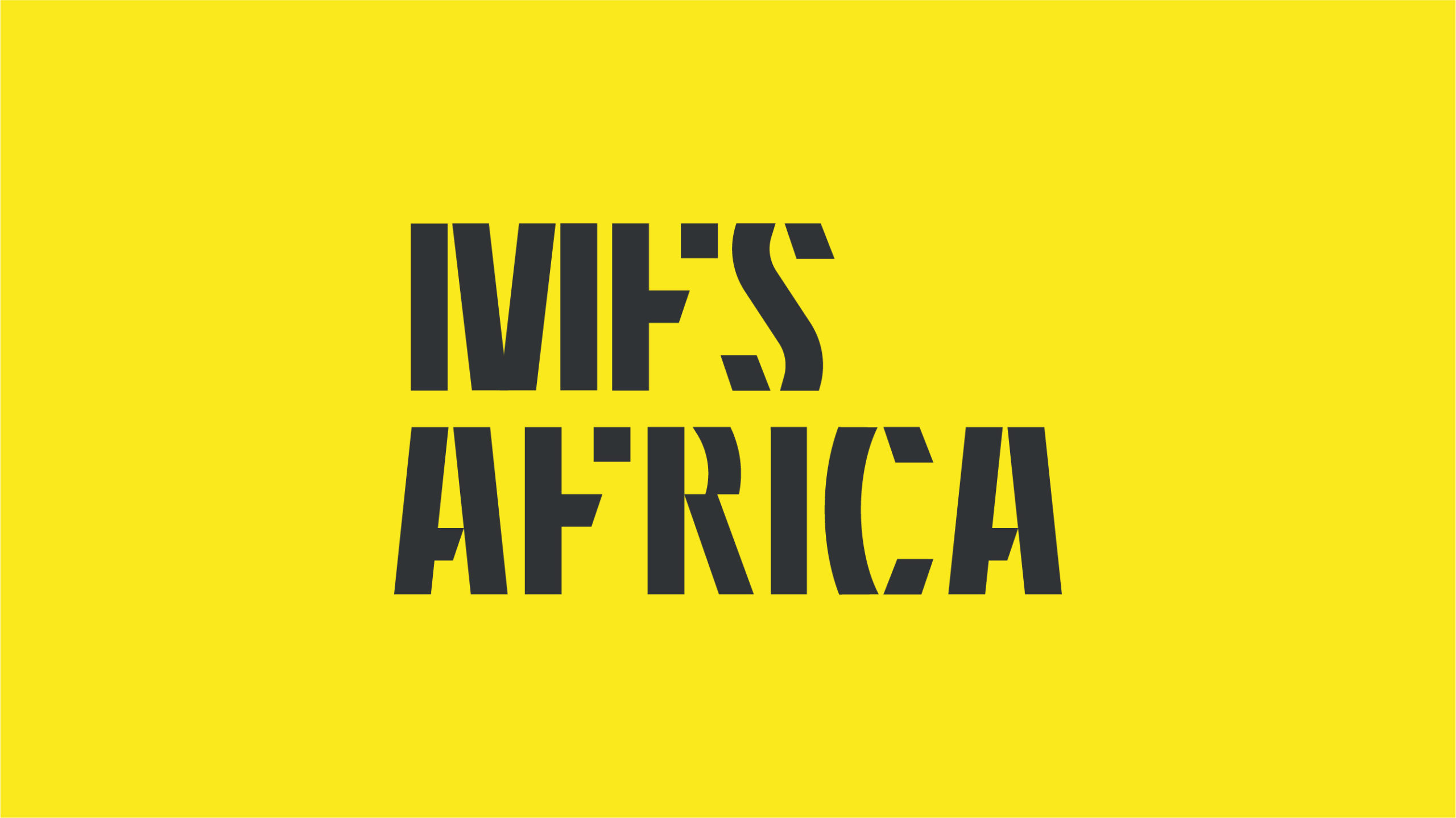Broadcasting
How can Nigeria build on the payment evolution brought about by the Naira shortage

By Mxolisi Msutwana – Chief Operating Officer at Baxi
All around the world, governments are trying to encourage cashless payments. Their reasons for doing so are multiple, including expanded financial inclusion and transparency, wanting to formalise the informal economy, and to drive economic growth and innovation. Nigeria is no exception.

By the end of 2022, the move towards a cashless policy as a means to eradicate cash was high on the government’s agenda in Nigeria. In early 2023, a bid by the Central Bank of Nigeria (CBN) to introduce new banknotes and lower cash withdrawal amounts led to a serious shortage of cash .
Unfortunately, there were not enough new notes in circulation to serve the needs of a country that’s historically been as heavily cash-dependent as Nigeria. While the initiative itself is a step in the right direction, there’s no denying that it caused issues.
The economic effects were far from positive. According to S&P, amidst widespread protests, many Nigerians were left scrabbling for ways to pay for day-to-day goods and services. As a result, many people who’d never previously used digital payment services had little choice but to adopt them. Fintechs in particular stepped up to the plate, helping Nigerians meet a fundamental need at a time when their lives had been massively disrupted. A report from Nigeria’s Inter-Bank Settlement System (NIBSS) found that there was a 125% increase in mobile payments during January compared with the same period in the previous year. Additionally, Bloomberg reports, the value of mobile-money transactions has jumped by a quarter to 2.5 trillion naira (US$5.4 billion).
As the shortages abate, it will be crucial that digital payment providers do not let the resulting move to digital payments go to waste. In a country with a long history of relying on cash as the primary means of payment as Nigeria, they will have to work hard to retain the customers they’ve gained in recent months and position themselves for continued accelerated growth.
How digital payment providers evolved
Before looking at how digital payment providers can do so, it’s worth taking a deeper look at how they responded to the situation. That the crisis represented a particularly big opportunity for digital payment providers that allow people to make transactions with their mobile phones is to be expected. After all, as Bloomberg points out, just under 40% of Nigerians have access to bank accounts, compared with mobile-phone penetration of 117% in the country, giving them the opportunity to expand rapidly. Given the comparatively low levels of mobile money use prior to the cash shortages, it should be clear just how much potential for growth there was (and still is).
Of course, those operators still had to work hard to ensure that they were able to properly service the growing pool of customers looking to make and receive digital payments. MTN Nigeria, for example, is planning to deploy 224 000 agents to boost the adoption of mobile wallet use.
At Baxi, meanwhile, we onboarded record numbers of agents, ensuring that people were able to easily send and receive money. We also supported merchants in providing solutions for payment collections during that period by deploying additional point-of-sale (POS) terminals, allowing customers to pay via card and transfers, and allowing merchants to generate account numbers for payment collections.
Of course, not everything went according to plan for every digital payment provider. As a recent column in TechCabal pointed out, many Nigerians complained about the high failure rate in digital transactions.
Cash will always be important
Even in the face of such growth, it’s important to remember how dominant cash has historically been in Nigeria. Despite cashless transactions rising 42% in 2022, cash-based payments still accounted for 63% of all POS transactions in the same year, according to the FIS Worldpay Global Payments Report 2022. That’s significantly higher than the global average of 17.9%. It also puts Nigeria well ahead of the average for the Middle East and Africa region, where cash accounts for 44% of POS payments.
The reasons for the dominance of cash in Nigeria are deep-seated too. They range from a lack of access to bank accounts (just 39% of Nigerians aged 15 and older have a formal bank account) to trust issues with the formal economy. An extensive informal economy and infrastructure challenges also play significant roles while the power of force of habit can’t be ignored either.
In other words, digital payment and mobile money providers cannot simply assume that the boon they’ve experienced as a result of the cash shortage will continue unabated. They also can’t assume that cash will be displaced. It will continue to play a significant role in Nigerian society for a long time to come.
Instead, they should focus on using the situation to ensure that Nigerians and merchants alike understand the very real advantages that digital payments and mobile money have in specific situations.
Security, convenience, and increased access
When it comes to consumers, for instance, payment providers need to highlight that the day-to-day transactions that they enabled during the cash shortage were just the start of what they can offer.
Of course, it’s important to keep emphasising that digital payments offer consumers better security and convenience, especially when it comes to large transactions.
But it’s also important to highlight the additional benefits that digital payments offer. Thanks to advanced integrations, for example, customers can access audio and video streaming services without needing a formal bank account. In many cases, the promise of access to something you didn’t previously have access to is a much more powerful incentive than being able to complete existing tasks more conveniently.
For merchants, meanwhile, security is also a benefit that can continue to be emphasised. For small businesses especially, using electronic channels makes tracking your cash-generating activities easier than ever.
Here again though, there are other significant benefits that should be emphasised, including the ability to automate takings. The digital records made available by having digital payment offerings as an option can also ease the path towards formalisation for small businesses. That, in turn, makes it easier to access things like growth financing.
An opportunity not to be missed
Ultimately, there’s never been a better time for digital payment providers to press home what they can offer to both consumers and merchants. But they must make the most of that opportunity. Their best hope for doing so isn’t to degenerate the role of cash but to emphasise the very real opportunities they can help unlock.
Broadcasting
How Flavour’s Uplifted Album Changed the Game: 15 Years of Igbo Pride and Global Hits

Fifteen years ago, something truly special dropped onto the music scene: Flavour N’abania’s second album, Uplifted. This was a first showcase of his talent. With powerful vocals, masterful highlife production, and a deep connection to his cultural roots, Uplifted solidified Flavour’s reputation as a gifted artist.

At the time of its release, Uplifted smashed through borders and cultural divides, all thanks to Flavour’s deep commitment to celebrating his Nigerian roots, especially his Igbo heritage. This powerful connection to his culture has made him a major force, not just in Nigeria, particularly in the East, but also among the Igbo community dotted around the world.
The sheer success of Flavour’s cultural expression is highlighted by Spotify data from Uplifted and his other tracks. Even though his songs are deeply rooted in his culture and often sung in Igbo, they’re getting massive plays all over the globe.
Uplifted itself has stayed a big deal on streaming platforms, with its standout tracks racking up some serious numbers. Among the most-streamed hits from the Uplifted album are Ashawo Remix, Adamma, and Oyi (I dey Catch Cold). These tracks, along with other timeless fan favourites like Time To Party, Nwa Baby (Ashawo Remix), and Game Changer (Dike) have all contributed significantly to Flavour’s overall streaming success, proving their lasting appeal. Reflecting on the album’s anniversary during an exclusive chat with Spotify, Flavour revealed that for him, “Adamma” truly captured the essence of Flavour from the Uplifted album era.”
From the heart of Nigeria to global playlists: Flavour’s universal pull
Flavour’s music really does have a universal pull. His songs have popped up in over 2 million user-made playlists, which shows just how much people are connecting with and sharing his tunes. And get this: in the last three years, from 2022 to 2024, Flavour’s music has seen a growth in streams, a total stream increase of 134% globally, and a 573% increase across Sub-Saharan Africa.
While 51% of his total audience is in Nigeria, his influence stretches far and wide with the USA, UK, Canada, South Africa, and France all among his top listening countries. That’s a truly global footprint, reaching across Africa, Europe, and America.
Leading Flavour’s listenership in Nigeria is a strong showing from Lagos, accounting for 38% of his Nigerian audience. The Federal Capital Territory (FCT) and Rivers State also follow closely, making up 22% and 16% respectively, together claiming 76% of his Nigerian audience. He also enjoys love in the east as two Eastern Nigerian cities, Enugu and Onitsha, break into his global top 10. Big international cities like Greater London, Johannesburg, and New York City feature prominently too. This wide geographical spread shows how his music crosses all sorts of borders.
Who’s listening? A look at Flavour’s fanbase
Flavour’s audience is diverse with Gen Zs (18-24 year olds) as his biggest fans globally and across Sub-Saharan Africa. This strong youth appeal is vital for his long-term success. While his music celebrates women, men form the majority of his listeners globally (57%) and in Sub-Saharan Africa (63%).
The lasting success of Uplifted highlights how digital streaming has completely changed the music industry. Platforms like Spotify have given artists like Flavour ways to connect with fans everywhere. These days, streaming data gives us a clear, numbers-based look at an artist’s reach, showing that Flavour’s cultural stories, delivered in fluent Igbo, truly resonate far beyond Nigeria’s borders.
Flavour’s strong link to his Igbo roots, seen in his music, has driven his global success, acting as a cultural bridge for Nigerian traditions. The ongoing popularity of Uplifted and his other songs on streaming platforms proves that genuine cultural expression, mixed with great artistry, ensures lasting success today. As Uplifted hits 15 years, it showcases the power of culture worldwide.
Broadcasting
Nigeria Week Ahead: CBN decision, ECB and USD in focus

By Lukman Otunuga, Senior Market Analyst, FXTM
This will be a week defined by high-impact events and corporate earnings from the largest companies in the world.

Nigeria’s central bank is expected to hold interest rates on Tuesday.
This decision is likely based on still stubbornly high inflation despite price pressures easing in recent months. Inflation slowed to 22.2% year-on-year in June, its third consecutive decline. A CBN rate cut could be on the cards in H2, but this will be on the back of persistently falling price pressures.
Looking at the NGX All Share Index, it has gained almost 10% month-to-date – pushing 2025 gains to nearly 30%. This means the NGX is currently outperforming the S&P500 and Nasdaq100 who have gained roughly 7% and 11% this year respectively. The Naira spot has held its ground against the USD this year after depreciating almost 70% in 2024.
Outside of Nigeria, earnings season is in full swing with US banks reporting strong results last week. Now the spotlight shines on big tech with Alphabet and Tesla reporting on Wednesday.
Alphabet shares gained 14% in Q2 amid strong AI product demand and growth in the cloud business. However, bulls may need a fresh catalyst to push Alphabet’s year-to-date gains out of the red. Tesla is down almost 20% year-to-date and could extend losses if its latest quarterly results are below market expectations
On the data front, key releases from Europe, the United Kingdom, Japan, and the United States may influence global sentiment.
But the main event for FX markets could be the European Central Bank decision on Thursday. No changes are expected to interest rates, but any clues offered on future moves could spark fresh volatility. Traders are currently pricing in a less than 50% probability that the ECB cuts rates by September
Speaking of FX, the dollar has weakened across the board with the DXY tumbling toward 97.70. This weakness could be based on mounting pressure from Trump to cut US rates and caution ahead of the tariff deadline on August 1st.
Note: Nigeria faces a 14% reciprocal tariff on its goods imported into the U.S, effective from August 1st.
Broadcasting
Big Brother Naija Season 10 to Premiere July 26 with Record ₦150m Grand Prize

MultiChoice Nigeria, today announced the highly anticipated return of Africa’s biggest reality television show, Big Brother Naija, for its landmark 10th season. Set to premiere over two nights on Saturday, July 26 and Sunday, July 27, 2025, the new season promises 10 weeks of captivating drama, strategic gameplay, and unparalleled entertainment, culminating in the grand finale on Sunday, October 5, 2025.

The audition process for this milestone season was meticulously designed to unearth the most engaging and dynamic personalities from across Nigeria. Audition registrations were held from May 3rd to May 7th, 2025, and saw an overwhelming response, followed by rigorous in-person auditions conducted in Lagos, Abuja, and Enugu from May 16th to May 18th, 2025.
Speaking on the upcoming season, Busola Tejumola, Executive Head, General Entertainment, MultiChoice Group, expressed her excitement: “Today we are not just announcing another season, we are celebrating a legacy.”
While the official theme for Season 10 will be unveiled on the premiere night, viewers can anticipate a fresh wave of excitement. The beloved Ebuka Obi-Uchendu is returning as host, guiding viewers through every twist and turn of the season. This 10th season also has the highest prize at stake – valued at a whopping N150million.
Fans can catch the premier live on July 26 and 27 exclusively on Africa Magic Showcase, Family and Showmax at 7 PM WAT. The Sunday live eviction shows will also air exclusively on these channels. The 24/7 live stream will be available on DStv Channel 198, GOtv Channel 49, and on Showmax.
“BBNaija has become more than just a television show; it is a living, breathing cultural force. It has given voice to a new generation of talent, creatives, entertainers, and the influencer community, and it has refined what homegrown entertainment can achieve when it is done at scale with intention and ambition,” added Tejumola.
With a two-night opening live show for Big Brother Naija Season 10, the season is poised to build upon the legacy of its predecessors, with fans expecting a more dynamic and entertaining experience. Still speaking on what the season holds Dr. Tejumola said “Today we are not just announcing another season, we are celebrating a legacy. From the very first time we introduced Big Brother Naija in 2017, we had an inkling that we had something special. What we couldn’t fully imagine then is how deeply the show would resonate not only in Nigeria but across Africa and in the global diaspora, where our stories continue to connect people to home.”
This milestone season for the iconic show is not without the usual lineup of sponsors. The gold sponsor for the 10th season of the show is Guinness Nigeria. Other sponsors include Smirnoff, Gordons, HFM, Pepsi, Aquafina, Supakomando, Tolaram Group, Bet King, Golden Penny Foods, Haier Thermocool, Checkers custard, and Innoson Motors, among others.
Viewers can catch all the live action and special broadcasts on DStv Channel 198, GOtv Channel 49, and Showmax. The live Sunday eviction shows will air exclusively on Africa Magic Showcase (DStv Channel 151, GOtv Channel 8), Africa Magic Family (DStv Channel 154, GOtv Channel 7) and on Showmax.
DStv and GOtv subscribers can also watch the show on the go using the DStv and GOtv Stream apps available on the Google Play Store and IOS App Store.

 E-Financial2 days ago
E-Financial2 days agoUBA’s LEO Becomes Africa’s First Chatbot to Enable Cross-Border Payments

 News2 days ago
News2 days agoUN Appoints Sa’id, Nigerian to Nuclear Panel

 E-Business2 days ago
E-Business2 days agoNIMC Enrolls 122m for NIN, Cuts Extortion by 40 Percent

 Telecom2 days ago
Telecom2 days agoMTN Urges Nigerian to Regards Telecom Infrastructure as National Assets

 Telecom1 day ago
Telecom1 day agoMTN Nigeria Rewards 1,500+ Winners with ₦290m in Mega Billion Promo

 General News2 days ago
General News2 days agoAppeal Court Nullifies Registration of ‘KPMG Professional Services’

 E-Financial1 day ago
E-Financial1 day agoNaira Slides Again, Hits ₦1,532.34/$ Despite CBN’s Dollar Push

 Telecom2 days ago
Telecom2 days agoBitget Launches $6M Global Crypto Trading Contest with New Competitive Segments






















